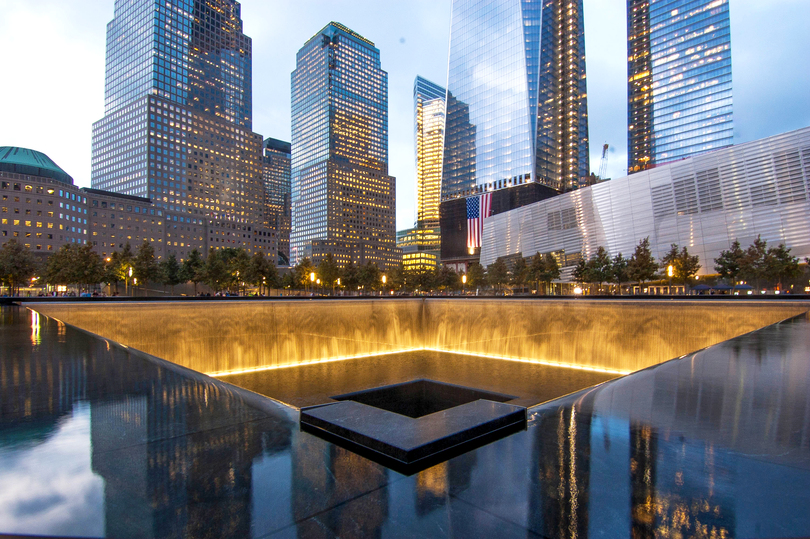SU alumna plays key role in design of One World Trade Center
A shiny new skyscraper — the fourth tallest in the world — stands in the middle of New York City’s financial district. The building’s presence on the city’s skyline is unmistakable. It’s a modern architectural feat and a symbol of human ingenuity.
But it’s also the site of an extraordinary tragedy that happened 14 years ago.
One World Trade Center, often referred to as “Freedom Tower,” opened in November 2014 and is located where the original World Trade Center once rose over New York City, before it was targeted in the attacks on Sept. 11, 2001.
Nicole Dosso, a Class of 1996 Syracuse University alumna and graduate of the School of Architecture, is one of the minds behind the One World Trade Center and is the architect that “finally got the damned thing built,” according to a Fast Company article.
The New York City native was always surrounded by the urban architecture of the city while growing up, she said. That’s why she wanted to become an architect.When it was time to choose an architecture school, SU was the obvious choice because of its program’s balance between design and other elements of architecture, she said.
Altogether, Dosso has spent the better part of her career dealing with the physical aftermath of the 9/11 attacks in some way or another, a fact that was made most apparent about five months after the completion of 1 WTC, she told Fast Company.
Standing at 1,776 feet tall, 1 WTC serves as a reminder of 9/11. Still, pieces of the attacks surround the skyscraper. There are slabs of the original World Trade Center integrated into the design of the new building. The recently completed 9/11 memorial and museum is also nearby.

Chase Guttman | Asst. Photo Editor
“A decision was made very early on to leave these slabs, remnants of the existing WTC site,” Dosso said.
As technical director of a distinguished architecture and urban planning firm, Skidmore, Owings and Merrill (SOM), Dosso worked on and helped design 1 WTC from when the designs were completed in 2007 to when the project was finished in its entirety in late 2014.
The greatest moment while working on 1 WTC, Dosso said, was when the building made it to ground level.
“It’s interesting how the press didn’t perceive getting to ground level as a major milestone,” she said. “But professionals understood its importance because some of the greatest technical challenges were below grade.”
Navigating the politics of designing and constructing such an important building also presented challenges for Dosso, because of the number of people involved in the building process and the hierarchy in making key decisions.
Dosso added that dealing with the Port Authority, the Durst Organization, consultants, clients and other construction in the area made the process unusually complex and slow.
“If you start to get caught up in all of that, you can become completely overwhelmed,” she said.
After seven years of construction, 1 WTC was finally completed, and now, Dosso said, it’s “one of the most recognizable towers in the world.”

Tiffany Soohoo | Design Editor
Within the first few months after 9/11, Dosso also worked on 7 World Trade Center, another building in the area that had to be rebuilt after 9/11. The building was completed in 2006.
“That building holds a very precious place in my professional career,” Dosso said.“Everybody was so mindful. Everybody’s heart was in the right place.”
She added that in the immediate aftermath of 9/11, everyone she worked with on the rebuilding effort was “bringing about a positive energy in a midst of despair.”
Dosso said she attended an event in May at the 9/11 museum before it opened. As she was walking out of the event, and standing on Memorial Plaza, Dosso looked up at 1 WTC, the skyscraper she helped build.
“I had to stop in my tracks for a second,” Dosso said. “I was very moved.”
Published on September 9, 2015 at 10:49 pm
Contact Rachel: rsandler@syr.edu







